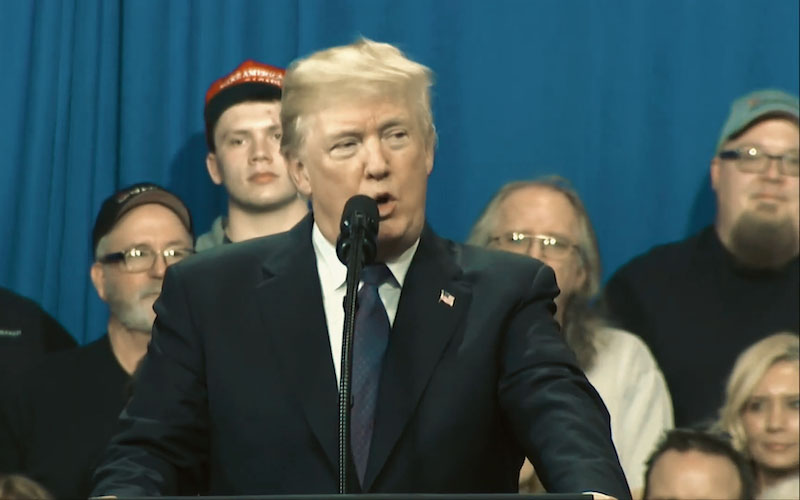Another shutdown? The US bipartisan funding war begins its second season!
2025-08-06 15:38:58
The breakdown of the nomination agreement before the summer recess became the direct fuse: Trump demanded that the Senate first approve about 150 nominees to be confirmed, otherwise the four-week recess originally planned for the summer would be canceled; Schumer offered to " unfreeze the spending approved by Congress " in exchange, but Trump refused and called it " political blackmail ", and eventually temporarily shelved the work of confirming the nominees. Schumer took this opportunity to show a tough stance under pressure from within the party.
Currently, the core showdown between the two is over the federal government funding deadline of September 30. If a spending bill cannot be passed to replenish funds before then, the government will face a shutdown crisis on October 1.

Schumer had previously been criticized within the party for supporting the Republican spending bill in March 2025. This tough strategy was both a response to pressure within the party and a prelude to the funding struggle in the fall. Trump adopted the strategy of "no negotiation, leading the agenda himself", repeatedly attacking Schumer through social media , calling him "Crying Chuck", and refusing any compromise.
This political uncertainty stems primarily from the clashes and breakdown in communication between key figures . The relationship between Trump and Schumer is virtually nonexistent, with a lack of direct dialogue. Even nomination negotiations rely on Senate Majority Leader Thune acting as an intermediary. This lack of communication makes it difficult for the two parties to reach an effective consensus. During the summer nomination negotiations, the two parties came close to an agreement several times, only to fall through due to Trump's sudden change of heart, highlighting how the clashes between key figures directly hinder decision-making efficiency.
Trump's unpredictable behavior is another driver of uncertainty in American politics. Connecticut Democratic Senator Anthony Blumenthal stated bluntly, "Trump's unpredictability is the most striking fact." He has been erratic in nomination negotiations, rejecting conventional compromise on spending issues, refusing to release spending freezes in exchange for nomination approval, and even potentially launching social media attacks driven by personal emotion, making the president himself the biggest variable.
Divisions and pressure within both parties have also exacerbated political uncertainty. Within the Democratic Party, Pennsylvania Senator Fetterman advocates for a "vote to keep the government open," while Massachusetts Senator Warren takes a more confrontational stance, stating that "budget negotiations are not worth mentioning." Schumer faces a challenge to balance these positions. Within the Republican Party, House Speaker Johnson struggles to win over other members of the House of Representatives over whether to pass a short-term funding bill before October 1st, making it difficult to form a unified strategy.
Power struggles and strategic confrontations further amplified the differences. Schumer, who controls Senate Democrats' filibuster power over spending legislation, responded to internal party criticism with a "hardline" approach and used the nomination fight as a warning for the fall funding wars. Trump, on the other hand, sought to pressure Republicans to control legislation and even considered amending Senate rules to push through his nominees. Both sides prioritized power struggles over policy consensus.
The impact of this impasse is beginning to show. The crisis in government operations is intensifying , and with the September 30th funding deadline approaching, a federal government shutdown is imminent unless a deal is reached. Although Schumer and Thune have previously pushed for a bipartisan funding plan to demonstrate unity, differences over short-term funding have emerged, and Trump's uncertainty is making resolving the crisis significantly more difficult. A similar impasse previously led to a 35-day government shutdown in 2018 , and the risk of a repeat is high.
This has also led to a significant disruption in Congressional functioning . The breakdown of the nomination agreement has prevented the confirmation of approximately 150 executive branch nominees, impacting the normal functioning of government agencies. Stalled negotiations on a spending bill have hindered the release of needed federal funds, posing a risk of disrupting policy continuity . Both delays in confirming executive branch nominees and the difficulty in passing a spending bill could lead to gaps in policy implementation. For example, if funding for institutions like the National Institutes of Health is not promptly disbursed, it will directly impact scientific research and public services. Furthermore, if the expiration of tax credits under the Affordable Care Act is not resolved, it will impact public welfare.
The erosion of political trust is equally evident. Partisan rivalry and public mockery of key figures have further fractured the political landscape, and public confidence in Congress's ability to reach consensus has declined. Concerns are widespread on Capitol Hill: the collapse of the summer nomination agreement has left many questioning "what's next?"
Overall, the impasse between Trump and Schumer epitomizes the polarization and political fragmentation of the US bipartisanship . Its core conflict stems not only from policy differences but also from a complex mix of power struggles, personal rivalries, and institutional flaws. Unable to resolve in the short term, this will continue to heighten the risk of a government shutdown, hinder Congressional functioning, and erode political trust. While the Senate has shown signs of bipartisanship (such as 85 senators advancing a bipartisan funding plan), Trump's role as the ultimate variable and the strategic confrontation between the two parties make the direction of the fall spending showdown uncertain. As Thune noted, "some issues requiring 60 votes require dialogue," but in the current political landscape, dialogue and consensus remain elusive political aspirations.
The heightened risk of a US government shutdown has a significant impact on foreign exchange, commodity, and gold trading: gold is supported by safe-haven demand; increased US dollar volatility may strengthen safe-haven currencies like the Japanese yen; energy and industrial metals are under pressure due to demand concerns, with precious metals showing strength. Keep a close eye on the September 30th milestone and be wary of increased volatility.
- Risk Warning and Disclaimer
- The market involves risk, and trading may not be suitable for all investors. This article is for reference only and does not constitute personal investment advice, nor does it take into account certain users’ specific investment objectives, financial situation, or other needs. Any investment decisions made based on this information are at your own risk.





















